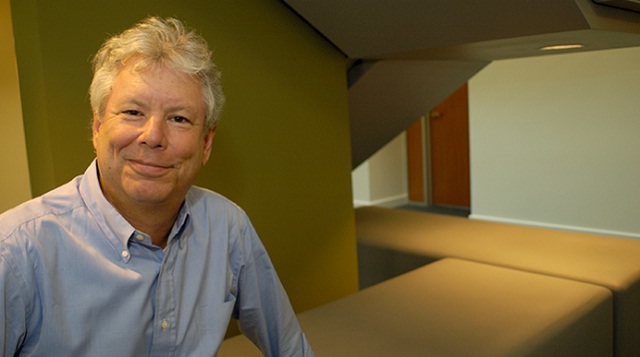
Stockholm, Sweden | AFP | US economist Richard Thaler won the Nobel Economics prize on Monday for showing that economic and financial decision-makers are not always rational, but mostly deeply human.
Bridging the gap between economics and psychology, Thaler’s research focuses on behavioural economics which explores the impact of psychological and social factors on decisions by individuals or groups in the economy and financial markets.
“He’s made economics more human,” the Nobel jury said, calling Thaler “a pioneer” on integrating economics and psychology.
Thaler is well-known for co-founding the “nudge” theory, which demonstrates how people can be persuaded to make decisions that leave them healthier and happier.
“By exploring the consequences of limited rationality, social preferences, and lack of self-control, he has shown how these human traits systematically affect individual decisions as well as market outcomes,” the jury’s statement said.
– In ‘The Big Short’ with Gosling –
“His empirical findings and theoretical insights have been instrumental in creating the new and rapidly expanding field of behavioural economics, which has had a profound impact on many areas of economic research and policy.”
He has advised several governments, including in Denmark and France, and former British prime minister David Cameron set up a team in 2010 nicknamed the “nudge unit” to reshape a swath of policies to gently prod Britons to make the right decisions to make them healthier and happier.
His work even earned him a glamorous foray into the movie business when he made a cameo appearance, alongside Christian Bale, Steve Carell and Ryan Gosling, in the 2015 movie “The Big Short” about the credit and housing bubble collapse that led to the 2008 global financial crisis.
Thaler told the Nobel committee by teleconference he was “pleased” by the award.
“I no longer will have to call my colleague Eugene Fama ‘Professor Fama’ on the golf course,” he joked, referring to his University of Chicago colleague who won the prize in 2013.
“I think the most important recognition is that economic agents are human, and economic models have to incorporate that,” he said.
The 72-year-old takes home the nine million kronor (944,000 euros, $1.1 million) prize sum, which he jokingly said he would “try to spend as irrationally as possible”.
– ‘Nudge unit’ –
Thaler is a professor at the University of Chicago — a school popular with the Nobel economics committee. Of 79 laureates so far, more than a third have been affiliated with the university’s school of economics.
One of the founders of behavioural finance, which studies how cognitive limitations influence financial markets, Thaler developed a model for explaining how people tend to focus on the narrow impact rather than the overall effect of each decision they make, which is called limited rationality.
This includes the study of how people’s loathing of losses can explain why they value the same things more when they own them as opposed to when they don’t, which is called the endowment effect.
Thaler illustrated that New Year’s resolutions can be hard to keep as short-term temptations disrupt people’s plans to save for their old age or rainy days.
“In his applied work, Thaler demonstrated how nudging -– a term he coined -– may help people exercise better self-control when saving for a pension, as well in other contexts,” the Nobel jury said.
Thaler and his US counterpart Cass Sunstein turned “nudge” into a political buzzword with their 2008 book of the same name.
In a 2008 column, the duo mentioned that an economist’s idea to etch a black house fly onto Amsterdam Airport Schiphol’s urinals caused spillage to decline by 80 percent.
“It turns out that, if you give men a target, they can’t help but aim at it,” Thaler and Sunstein wrote in the US-based magazine New Republic.
 The Independent Uganda: You get the Truth we Pay the Price
The Independent Uganda: You get the Truth we Pay the Price





